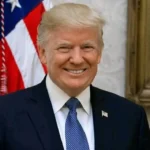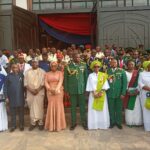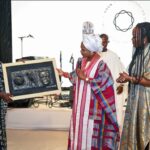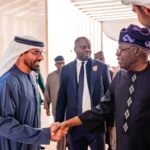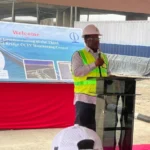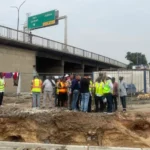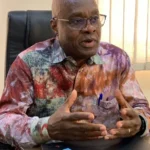Deciding African peace, stability through adherence to democratic tenets
A news analysis by Emmanuel Oloniruha, News Agency of Nigeria (NAN)
The 2023 Democratic Index annual report of the Economist Intelligence Unit (EIU) released in February rated Norway, New Zealand, Finland, Sweden, Iceland, Denmark, Ireland, Taiwan, Australia, and Canada respectively, as the 10 most democratic countries in the world.
Of the 167 rated countries, Nigeria came 106, Niger Republic-124, North Korea-164, Democratic Republic of the Congo-162, Syria-163, Myanmar-165, while Afghanistan came last.
Unarguably, democracy as a form of government is identified as the best platform for achieving peace, equality, justice, inclusion and sustainable development.
Though many countries across the world have embraced democracy, not all democracies are the same. While some nations operate full or flawed democracy, others practice either hybrid or authoritarian regime.
According to the Democracy Index, “a myriad of democratic sub-types exist, including constitutional democracy, green democracy, demarchy, illiberal democracy, industrial democracy, and more.
Notwithstanding the type of democracy being practice by a country, multiple theories identified specific elements required for a government to qualify as a democracy.
Some of these elements include a pluralistic system of at least two legitimate-but-different political parties coexist; a free and fair electoral process; open and transparent government with respect for rule of law and proper checks and balances; civil liberties; as well as free and independent media.
To a Stanford University political scientist, Larry Diamond, any democracy must possess four key elements.
“A political system for choosing and replacing the government through free and fair elections; active participation of the citizens in politics and civic life; protection of the human rights of all citizens; and a rule of law in which the laws and procedures apply equally to all citizens.”
As many countries are working hard to improve their elections and deepen the roots of democracy, the issue of leadership failure and its impact on democracy in Africa continent has continue to be subject of discussion.
More attention is being paid to the continent due to recent political tension confronting its democracy that manifested in Sudan, Ethiopia, Libya, Chad, Mali, Guinea, Burkina Faso and recent removal of a democratic government by the military in Niger Republic.
Political scientists and analysts believe that in many African countries today, the essential values of democracy such as the rule of law, separation of powers and constitutional term limits are no longer adhered to.
The situation, they argued, posed a threat to the survival of democracy in Africa, as the promises of peace, justice, and human freedoms are daily betrayed.
To a political analyst, Mr Jide Ojo, the recent political instabilities in any of the African countries could not be divorced from lack of good governance caused by leaders.
Ojo listed some of the factors that contributed to political instability in the continent to include situations where leaders emerged through disputed elections and do not keep to their campaign promises, altered their countries’ constitutions to sit tight in power or even try to gag the media and civil society groups.
“Even the recent coup in Niger Republic, it was because there was disputed election and the non-delivery of campaign promises.
“If you look at the issue of political instability in Africa, it’s majorly due to the way and manner in which we have practice our democracy. Some African countries will call its home ground democracy.
“What is home grown democracy when there are universal standard that provides for one man one vote; respect for the constitution and rule of law, due process and independent democratic institutions?’’ he asked.
Ojo said that for Africa democracy to be stabilised there must not be interference of the executive in the works of judiciary and legislative arms of government, the media must also be independent and vibrant, while the political parties must hold dear the principle of party internal democracy.
“If they are going to rectify the situation of political instability in Africa, leaders in the continent have to ensure that there is rule of law, which run on three principles; supremacy of the law, equality before the law and the observant of fundamental human rights.
“Leaders have to follow due process, do things in accordance with laid down principles. There should not be abuse of power. They must do away with culture of impunity.
“Once all of these are in place, I can tell you there will be political stability, weather in Africa or at the global community,’’ Ojo said.
He added that to reverse the ugly trend of political instability, the Africa Union (AU) must make it mandatory for countries in the continent to follow rule of law.
Ojo said that AU must also enforce the independence of institutions of democracy, such as political parties, electoral management body, the judiciary, the legislative assembly, and the media.
To former President Goodluck Jonathan who has been involved in the process of promoting democracy across Africa, since he left office in 2015, democracy thrives when leaders respect the rule of law and prioritize the interest of their citizens.
Jonathan, who is the Chairman of West Africa Elders Forum (WAEF), has at different fora urged African leaders to adhere to the rule of law and prioritise equality and justice in order to safeguard democracies in the continent.
The former president while receiving ‘African Democracy and Peace Icon Award’ at the maiden edition of the African Heritage Concert and Awards, in Kigali, capital of Rwanda, in April, urged African leaders to prioritise service to their people.
According to Jonathan, for a nation to grow, leaders at various points must deliberately make the necessary sacrifice that promote patriotism, inspire devotion and spur citizens to do their best for their country.
“The duty of leaders is to run their countries properly and efficiently, and not to dehumanize human beings and make their lives difficult,” he said.
Jonathan, also speaking at a one year memorial summit in honour of Late Dr Idahosa Okunbo in August 2022, said that Africa leaders must worry about the depth of their footprints, leadership style and the kind of legacies they are leaving behind.
“The essence of leadership is to drive initiatives that seek to build sustainable societies and make the lives of the people better and more meaningful.
“Every political leader should, in a moment of introspection, spare a thought for the legacy he or she would leave behind.
“Will you be remembered as a deceitful leader, an ethnic bigot, religious fanatic or a nation builder that would leave lasting legacies for the people?’’ he asked
Jonathan added that anybody aspiring to public office should first articulate his own vision and philosophy of leadership.
Also delivering a lecture at the 2nd Kenneth Kaunda Memorial Public Lecture in Pretoria, South Africa, Jonathan said there was need to redefine leadership and governance process in Africa to address contemporary challenges facing the continent.
Jonathan said while scholars may adduce a number of reasons to current major conflicts and undemocratic governments in a number of African States, recent development shows that leadership has become a major source of conflicts and wars in most of Africa countries.
“The leadership recruitment process and our inability to effectively manage political transitions have resulted in avoidable conflicts.
“Elections in some countries have become a source of instability, largely reflecting the kind of leaders we have in authority,’’ he said.
Jonathan said that Africa needed a leadership process that guarantees the fundamental freedoms and rights of the citizens and delivers a good life to them.
“We need to build and protect our political systems to serve the best interest of our people. We must learn how to manage our diversity and build an inclusive society,” Jonathan added.
To President Bola Tinubu, it was regrettable that West Africa, in spite of its numerous instruments and mechanisms for promoting democracy and good governance, is leading other regions in the use of unconstitutional means to change governments.
Tinubu stated at a high-level event organised by the United Nations Development Programme (UNDP) on the margins of 5th Mid-Year African Union (AU) Coordination Meeting in Nairobi, Kenya in July, called on African leaders to respect democracy, rule of law, and ensure political stability.
Tinubu, who is the Chairperson of Economic Community of West African States (ECOWAS), warned that the ugly trend of the military straying into the political arena is causing threats to peace, security and stability, and engendering poverty, displacement, and humanitarian crises.
The President, represented by the Permanent Secretary in the Ministry of Foreign Affairs, Mr Adamu Ibrahim Lamuwa, said that the ugly trend has also led to food shortages and escalated health challenges.
“We therefore must take deliberate steps to address the root causes of unconstitutional changes and coups d’état in Africa.
“As a continent, we cannot make progress toward achieving the goals and targets of the UN Agenda 2030 for sustainable development, as well as those of AU Agenda 2063 for the Africa We Want,’’ Tinubu said.
While acknowledging that democracy may present challenges in terms of management and dynamics, Tinubu said that it however remain the best form of government for 21st century Africa.
To the Executive Director of Goodluck Jonathan Foundation (GJF), Ms Ann Iyonu and many other stakeholders, African leaders have key role to play to safeguard democracies in the continent through the adherence to the rule of law and delivery of good governance.
“To safeguard our democracies from further recession and attacks, we call in governments to deliver on the promises of good governance, and prioritize free and credible elections and guarantee the rights of all citizens.
“Democracy flourishes in an atmosphere of peace, freedom and justice. This is the route we should follow to shore up our democracies and make democracy meaningful to all citizens,’’ Iyonu said.(NANFeatures)
*** If used, if credit the writer and the News Agency of Nigeria(NAN).


